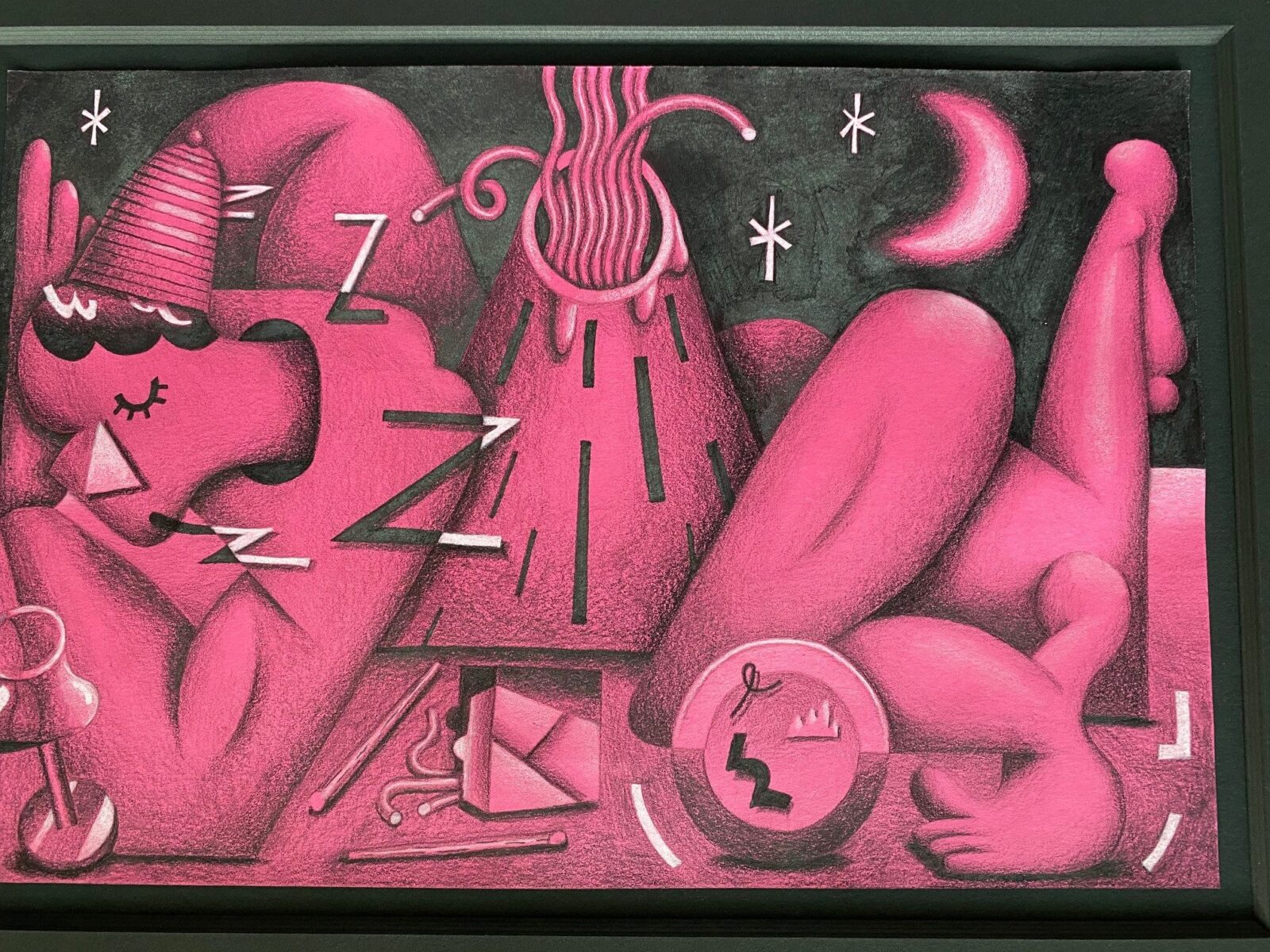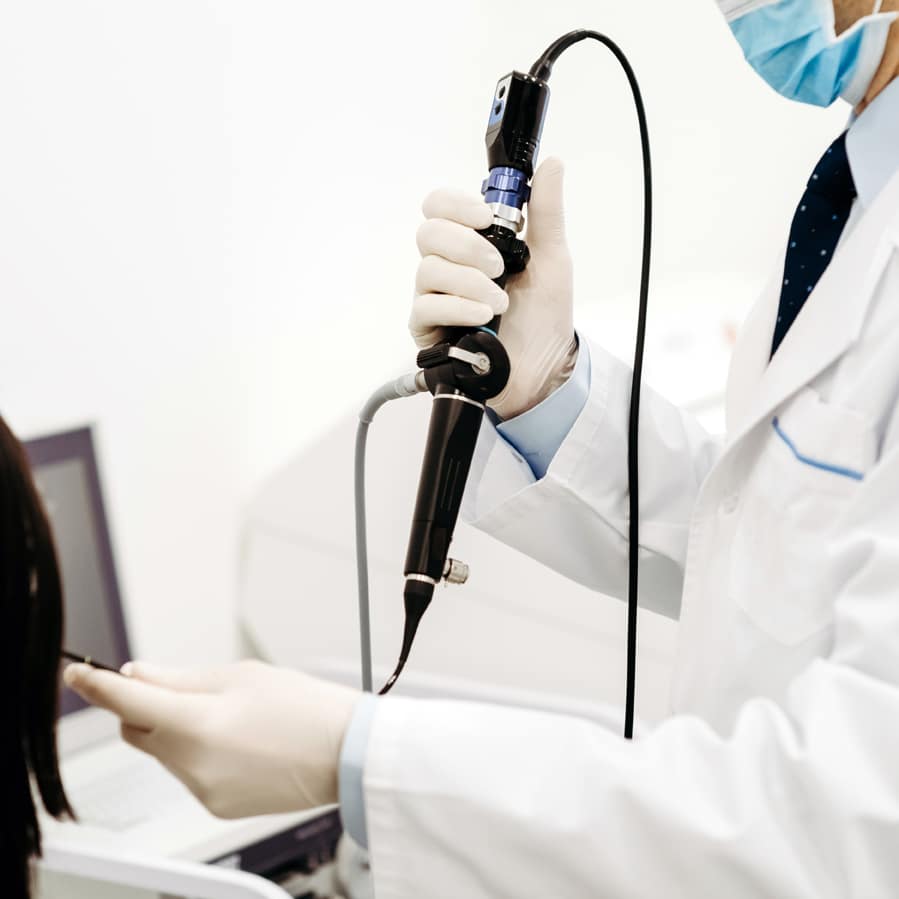
Silent Reflux
At-A-Glance
- No heartburn or indigestion? You still may have serious acid reflux, “silent reflux.”
- It may come as a surprise to you, but most people with reflux have this type without any GERD symptoms. Tens of millions of people are unaware that they have reflux because the reflux occurs quietly at night during sleep AND it’s predominantly LPR, respiratory reflux.
- Today, respiratory reflux is more common than GERD. Only 20% of people with reflux have heartburn or indigestion. And silent reflux is almost “cultural,” because most of us consume our evening meals too late, going to bed with a full stomach, to reflux; and other most common risk factors for nighttime reflux are alcohol, after-dinner snacking, over-eating and obesity.
- Most common symptoms: post-nasal drip, too-much throat mucus, nose and sinus problems, laryngitis, shortness of breath, asthma, bronchitis, and chronic cough. Those don’t almost never get fixed, because neither the sufferer nor doctor recognizes that the underlying problem is reflux.
- Most physicians, including gastroenterologists, still do not don’t recognize or diagnose LPR silent respiratory reflux; and to make matters worse, they have no reliable diagnostic test for LPR.
Silent reflux is the great masquerader of our time. Many patients with asthma, sinus disease, “allergies,” chronic bronchitis and cough as well as shortness of breath and other breathing problems, have silent reflux; but neither the patient nor their doctors recognize the underlying problem.
This is true for many, perhaps most respiratory conditions including, but not limited to, asthma, bronchitis, laryngitis, post-nasal drip, chronic cough, choking episodes, shortness of breath, chronic throat-clearing, difficulty swallowing (dysphagia), a lump-in-the-throat sensation (globus) and chronic obstructive pulmonary disease (COPD).
How Do I Know If I Have Silent Reflux?
If you have any of the above symptoms, you may have silent nocturnal respiratory reflux; so take the quiz below.

If your total score is 15 or more, there’s a 90+% chance you have LPR reflux.
Only an ENT doctor can examine you to make the diagnosis of LPR. If you see a gastroenterologist for this … you’d be better off talking to a tree. GIs know almost nothing about LPR and they don’t have a test for it — and no, for treatment, a purple pill won’t get it done either.
Different Types & Terms for Acid Reflux
GERD: The term GERD (gastroesophageal reflux disease) was coined 100 years ago; and thereafter it was believed that the symptoms heartburn and indigestion were caused by stomach contents coming up into the esophagus causing inflammation. Unfortunately, until the 1990s, term GERD was used for all reflux; heartburn, acid reflux and GERD were synonymous (and no one recognized LPR at all).
LPR: In 1991, after publishing the magnum opus of my career, The Otolaryngologic Manifestations of GERD, I coined the term LPR (laryngopharyngeal reflux). I recognized that the new term was needed to differentiate what I was seeing in my ENT (ear, nose and throat) patients (hoarseness, cough, postnasal drip, lump in the throat sensation, etc.) from GI patients with heartburn/indigestion. Note: Most LPR patients do not have heartburn or GERD. (By the way, LPR literally means reflux into the voice box and throat.)
RR (Respiratory Reflux): I believe that this will become the pinnacle term for LPR. By “pinnacle” I mean that this is the best term for LPR. It is more intuitive and easier to understand and pronounce. After all, once reflux travels north of the esophagus into the throat, it is in the respiratory tract. And consider this: the throat is part of both, the digestive and respiratory tracts.
Silent Reflux: More than 25 years ago, a colleague, Dr. Walter Bo, came to see me as a patient with complaints of hoarseness and post-nasal drip. I examined him and told him that he had reflux. “No,” he insisted, “I have never had acid reflux.” When I explained that one could have LPR without having heartburn, Dr. Bo mused and responded, “I see. I have the silent type of reflux.” To which I responded, “Yes Walter; that’s right; you have silent reflux.” You see, he thought reflux was heartburn and heartburn was reflux, period. We now know that that’s not right.
Silent Nocturnal Respiratory Reflux: This term is the most descriptive of the condition and its pattern.
Even if you more-or-less sleep through the night, there still appears to be a relationship between silent reflux and the quality of the sleep. But, if you awake in the middle of the night with heartburn or coughing violently and gasping for air like a fish out if water, that is not silent reflux. That is some serious reflux. But for the rest of you with silent “silent reflux,” it is worth noting that people report that they sleep more soundly when their reflux is under control. We don’t know exactly how reflux affects sleep in this way but it adversely affects the quality of ones sleep.
Risk Factors for Silent Reflux — All Related to Diet and Lifestyle
Obesity
Alcohol
Overeating
Skipping meals
Late-night eating
High-fat fried food
High-acid (citrus) fruit
Lying down after eating
Too much caffeine (coffee)
Soft drinks (too much acid)
Natural History of Respiratory Reflux
How an acorn of silent nocturnal reflux gets planted, how it starts, is related to many variables; however, eating the evening meal too late and making it the major refueling meal the day is the causal common denominator for most people. And asymptomatic reflux is a vicious spiral going downward until it is symptomatic. Reflux grows like an oak, over years, even decades. That is because the more you reflux, the more you reflux. The sequence? Reflux causes the lower esophageal valve to get stiff, swollen and function poorly as a barrier, and worsening of the lower esophageal sphincter leads to worse reflux. After a while, esophageal function is impaired, and finally the upper esophageal sphincter kick out, too.
You silent refluxers are like the Lincoln Tunnel without any tolls, not even an E-Z Pass. When you lie down night, what’s in your stomach is in your esophagus is in your throat. And, the longer you have reflux, the more those protective anti-reflux mechanisms fail.
It probably takes a decade or two of reflux to develop reflux-caused snoring and sleep apnea. And make no mistake about it; silent reflux is the main cause of sleep apnea. This type of reflux is easy to overlooked (and seldom detected by GI reflux-testing methods) as there is often only one reflux event tonight, but that reflux event is all night long, as the refluxed material sits in a puddle in the throat for hours, the “puddle pattern,” on reflux-testing .
Meanwhile, reflux does not need to be chronic; it is correctable. If you can stop your reflux completely, by strictly adhering to a “reflux detox” program, for a period of three-weeks to three-months. Esophageal and valvular function can return to normal, that is, normal physiology can be restored!
Essentials Elements of Treatment For Silent Respiratory Reflux
- Have your last meal of the day early and do not make it your main refueling meal of the day. The idea is for you to go to sleep with a quiet and empty stomach. Note: It takes five hours for the stomach to empty completely in people who have long-standing reflux. So, if you go to bed at 11 p.m., you should close the kitchen at 6 p.m. AND try to get most of your calories for the day in before 5 p.m. And remember, no late-night snacks.
- Sleep on an incline of 45° or more. Gravity helps keep the reflux out of your respiratory tract. Unfortunately, standard GERD wedges are not high enough to be of great value for respiratory reflux.
- Eat a diet that is lean, green, clean, and alkaline. Avoid high-fat and deep-fried food, especially in the evening. Drink nothing out of the bottle except still water, preferably alkaline water. That means no soda or other soft drinks, energy drinks, fruit juices, and the like.
- Avoid all high-risk, reflux-trigger foods, including alcohol (especially white wine), chocolate, onions, peppers, and garlic. Also, avoid mints, apple cider vinegar, citrus of any kind and more than 2 cups of coffee a day.I also recommend famotidine (Pepcid) 20 mg before breakfast and dinner, and 40 mg before bed. In addition, Gaviscon advance aniseed should be taken (about a tablespoon, drawn from a bottle) after the evening meal and before bed. The Gaviscon must be purchased online as this particular product (not the American version) is not available in the U.S. I also recommend drinking alkaline water and chewing gum after meals.









